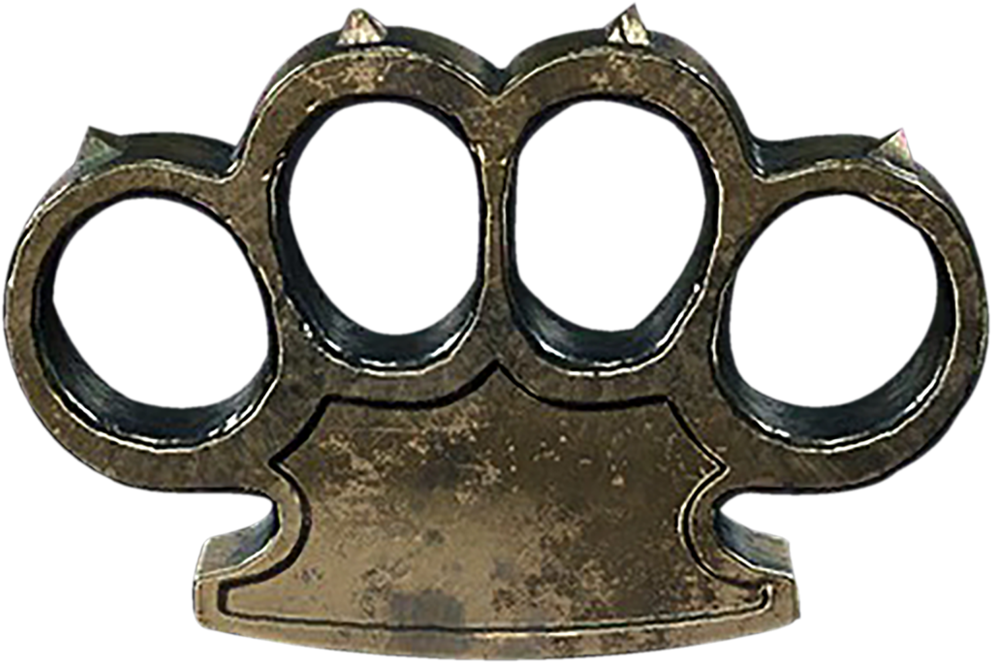
This image has format transparent PNG with resolution 991x662.
You can download this image in best resolution from this page and use it for design and web design.
Brass knuckles PNG with transparent background you can download for free, just click on download button.
Brass knuckles (variously referred to as knuckles, knucks, brass knucks, knucklebusters, knuckledusters, knuckle daggers, English punch, iron fist, paperweight, or a classic) are "fist-load weapons" used in hand-to-hand combat. Brass knuckles are pieces of metal shaped to fit around the knuckles. Despite their name, they are often made from other metals, plastics or carbon fibers. Designed to preserve and concentrate a punch's force by directing it toward a harder and smaller contact area, they result in increased tissue disruption, including an increased likelihood of fracturing the intended target's bones on impact. The extended and rounded palm grip also spreads the counter-force across the attacker's palm, which would otherwise have been absorbed primarily by the attacker's fingers. This reduces the likelihood of damage to the attacker's fingers. It also allows its user to break glass windows without injuring their hands, thus are widely utilized in vehicle theft to break car windows.
Metal ring and knuckle style weapons date back to ancient times and have been used all over the world for many hundreds of years. Vajra mushti has been practiced in India since at least the 12th century and mentioned in Manasollasa. The Nihang Sikhs used an early variant called Sher Panja in the 18th century. Cast iron, brass, lead, and wood knuckles were made in the United States during the American Civil War (1861–1865). Soldiers would often buy cast iron or brass knuckles. If they could not buy them, they would carve their own from wood, or cast them at camp by melting lead bullets and using a mold in the dirt.
Some brass knuckles have rounded rings, which increase the impact of blows from moderate to severe damage. Other instruments (not generally considered to be "brass knuckles" or "metal knuckles" per se) may have spikes, sharp points and cutting edges. These devices come in many variations and are called by a variety of names, including "knuckle knives."
By the late 19th century, knuckledusters were incorporated into various kinds of pistols such as the Apache revolver used by criminals in France in the late 19th to early 20th centuries. During World War I the US Army issued two different knuckle knives, the US model 1917 and US model 1918 Mark I trench knives. Knuckles and knuckle knives were also being made in England at the time and purchased privately by British soldiers. By World War II, knuckles and knuckle knives were quite popular with both American and British soldiers. The Model 1918 trench knives were reissued to American paratroopers. British Commandos even had their very own "Death's Head" knuckle knife, featuring a skull-shaped brass knuckle handle.
A notable knuckle knife still in use is the Cuchillo de Paracaidista, issued to Argentinian paratroopers. Current-issue models have an emergency blade in the crossguard.
In this page you can download free PNG images: Brass knuckles PNG images free download